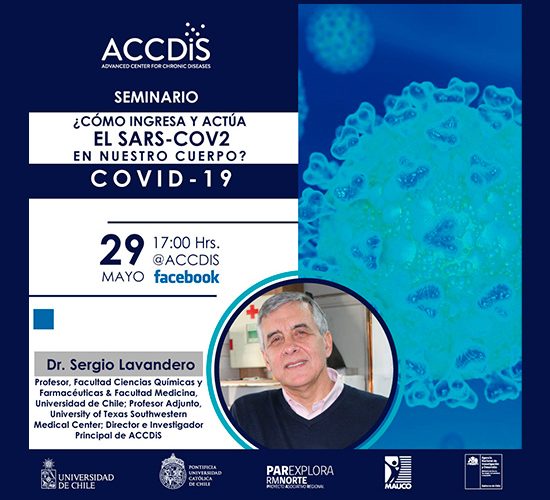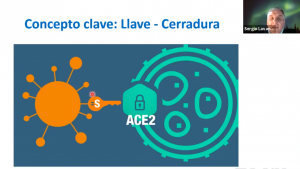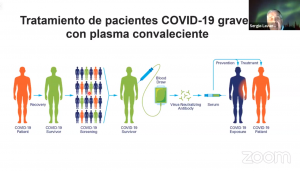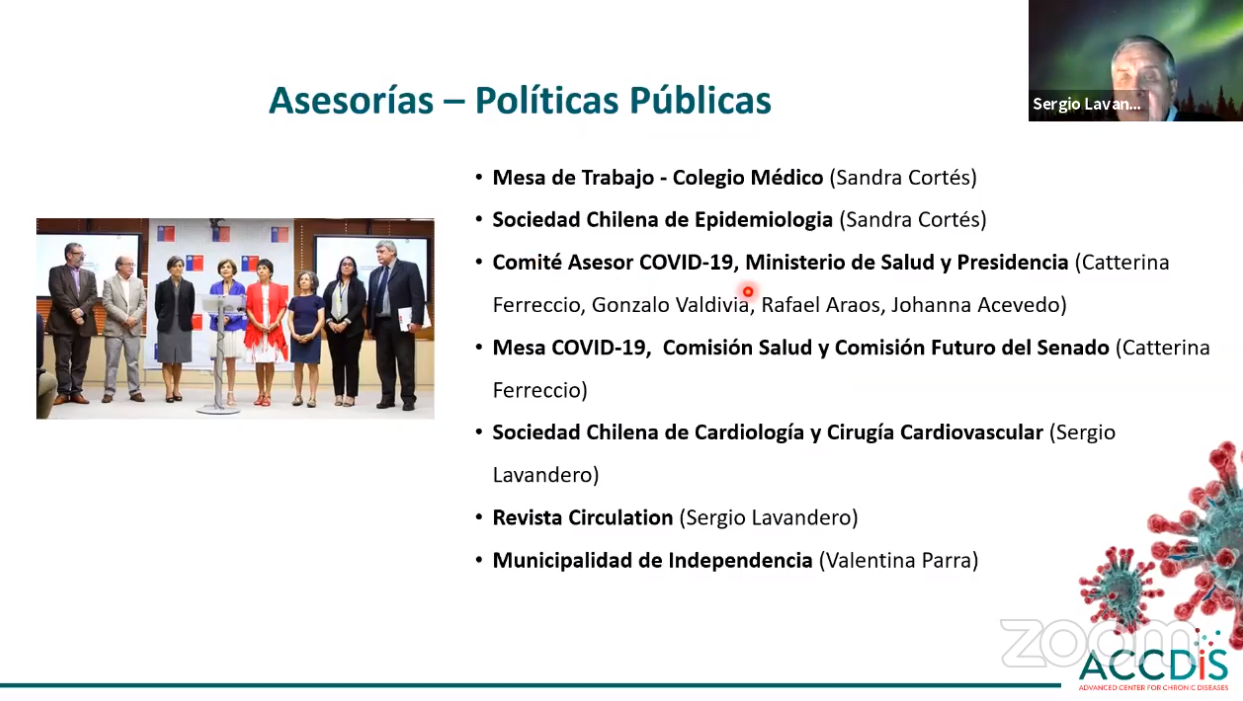How does SARS-COV2 enter and act in our bodies?

During the last seminar organized by leading researchers at the Advanced Center for Chronic Diseases (ACCDIS), the director of the Sergio Lavandero Centre, Doctor of the Faculty of Chemical and Pharmaceutical Sciences & Faculty of Medicine of the University of Chile; also Assistant Professor at the University of Texas UT Southwestern Medical Center, explained how SARS-COV2 enters and acts in our body.
Based on the analysis of these abbreviations, the academic explained that after the identification of COVID-19 in China, January 2020, a research team from the same country isolated and characterized the body responsible for this disease "resulting in a virus that became known as severe acute respiratory syndrome-2 (acronym SARS-COV2). This virus causes coronavirus disease 2019 (COVID-19)”, Dr.. Lavandero.
How does SARS-COV2 enter our body?
Faced with this concern that various people become, the professor pointed out through an illustration where the key is a protein of the virus called Spike and the lock of the entrance door to our cell is known as Angiotensin Converter Enzyme type 2, known as ACE2.
"This enzyme is key to our cardiovascular system", she is responsible for generating two protective molecules that have properties opposite to angiotensin II (Ang II), main regulator of our cardiovascular system. "If Ang II promotes increased blood pressure, these protective molecules perform the opposite effect, the same thing happens with inflammation, fibrosis and cardiac hypertrophy". So when ACE2 is destroyed, these protective molecules are not generated, explained Professor Lavandero.
A recent study published by the journal Nature, shows that ACE2 is effectively the recipient for SARS-COV2, which leads to wondering where these receptors are that allow the virus to enter the human being. Dr. Lavandero replied, "Taking into account recent publications, these ACE2 receptors are abundant in the nasal mucosa, in the deepest part of our lung and in the gut".
On the other hand, the teacher also took the opportunity to address another of the most frequent doubts in society, Is it possible to generate antibody to COVID-19? To this, responded that there are currently tests that measure the production of these protective antibodies, according to studies, after week 4 or 5 the generation of antibodies is observed.
With regard to treatments and possible vaccines to combat COVID-19, ACCDIS lead researcher reviewed the most hopeful studies, highlighting one of the most promising vaccines published by the journal The Lancet, which he showed in his preclinical trials that according to a dose provided for each case, generated neutralizing or protective antibodies between 75 and 100% of the blind..
 Another possible treatment is the use of convalescent plasma, i.e. blood is taken from patients recovered from COVID-19, neutralizing antibodies are separated and given to prevent or treat severe patients", said the doctor Lavandero.
Another possible treatment is the use of convalescent plasma, i.e. blood is taken from patients recovered from COVID-19, neutralizing antibodies are separated and given to prevent or treat severe patients", said the doctor Lavandero.
Anti- hypertensive and COVID-19
One of the controversies and uncertainties arising amid this pandemic, is the use of antihypertensives in patients with COVID-19, for which the cardiology expert emphasized "according to the latest studies published in The New England Journal of Medicine antihypertensive therapy should not be discontinued. It could also have protective effects on the coronavirus".
In this line, professor reported on his recent scientific paper "Renin-angiotensin counterregulator system in cardiovascular disease", published in the journal Nature Reviews Cardiology, conducted by researchers from ACCDIS and CENTHY - Center for new drugs for high blood pressure- where they refer to angiotensin-(1-9) as potent antihypertensive and anti-inflammatory in the cardiovascular system.
"These backgrounds led us to consider the possibility that angiotensin-(1-9) and angiotensin-(1-7) could be used to prevent SARS-VOC2 damage to the lungs", project nominated for the Contest of the Chilean National Research and Development Agency (ANID), lavandero said.
Finally, the teacher pointed out the contribution that ACCDIS is having to COVID-19, informing the Centre to submit 10 scientific proposals to the ANID CIVID Competition and has also provided public health advice to government agencies and international institutions. On the other hand, also highlighted the contribution of the Regional Partnership Project (PAIR) Explore NORTH RM, led by the University of Chile through the Faculty of Chemical and Pharmaceutical Sciences and executed by the, through talks, activities for teachers and guardians, information capsules and other materials have worked hard despite adversity in continuing to support the development of a scientific-technological culture in the school community.

